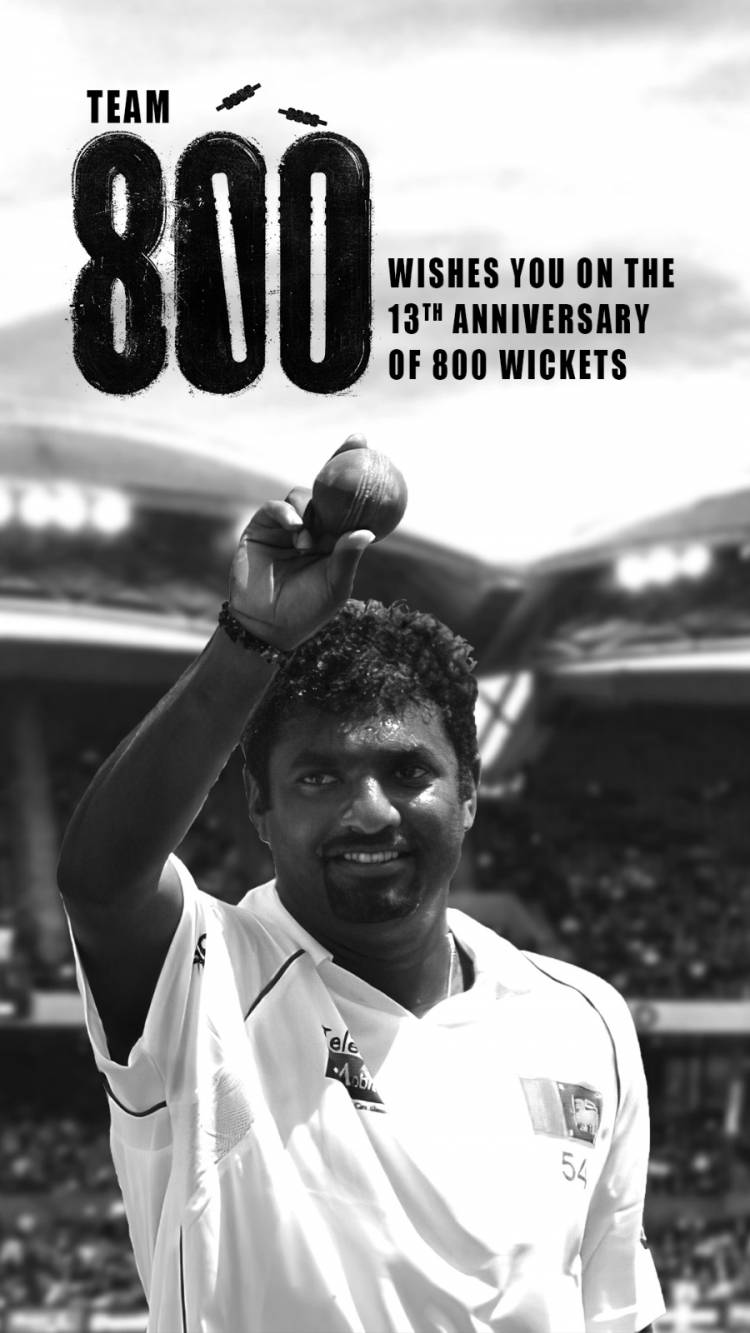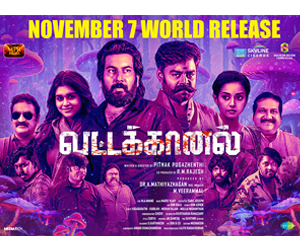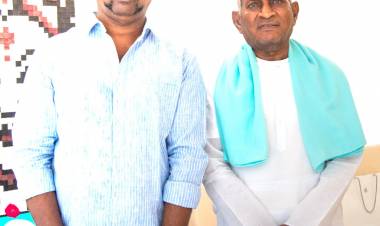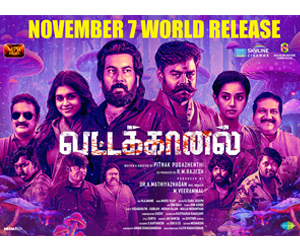Muttiah Muralidharan: The man who beat fate

Muttiah Muralidharan: The man who beat fate
The year was 2004, and the day was December 26th. It was a sunny Sunday, and Muthiah Muralidharan - recovering from a nagging shoulder injury - had a hectic day ahead of him.
He had planned to spend the day at a location very near the Sri Lankan city of Galle - the Sri Lankan city on the southwest coast of Sri Lanka. Galle is best known for Galle Fort, the fortified old city founded by Portuguese colonists in the 16th century.
Muralidharan (as he is known among his fans and colleagues) had planned to distribute sports kits and learning materials for the Foundation of Goodness, an NGO run by his manager, Kushil Gunasekera. Muralidharan was one of the chief patrons and donors of the NGO and often organised such distribution drives, an act that he continues to this day.
On the fateful day of December 26, 2004, Muralidharan was supposed to reach the location earlier but got a little delayed because Madhi, his fiance, was supposed to join him for the event.
The delay was 15 minutes at maximum, but that made all the difference. As Muralidharan’s car approached the location near Galle, his driver found all the roads flooded. As he tried to negotiate his way through, the water levels started to rise, and he had to turn back his car and return home.
Within 20 minutes of Muralidharan driving out to a safe distance, a tsunami hit Galle. The magnitude of the Tsunami was so high that it resulted in 11,000 deaths and more than 50,000 injured and homeless people.
The city of Galle went completely underwater, and it was the worst natural disaster to hit Sri Lanka in 100 years, triggered by one of the largest earthquakes in human history.
"I missed the wave by 20 minutes. I had just left…so I am lucky to be alive. The wave was over 20 feet (six metres) high, and it went two kilometres inland (more than a mile),” Muralidharan told ABC, adding, “A lot of our cricketers are from there, and we don't know how their families are. My manager barely survived. His house is gone," he added.
Muralidharan, regarded as one of the world’s greatest cricketers, admitted that he has been lucky, something he hadn’t said often in his entire career.
However, after the disaster, this iconic cricketer undertook one of the largest ever relief drives in the country, carrying relief materials across, even in the LTTE territory. The LTTE allowed the convoy of trucks carrying relief materials as Muralidharan was travelling with it.
Muralidharan also proposed to build 1000 houses for flood-affected people. The plan was so audacious that his manager jokingly remarked, “Building so many houses is not taking wickets on the field!” as he refused to believe such an enormous feat could be achieved at such short notice.
But Muralidharan being Muralidharan, showed his grit and managed to do the seemingly impossible task with help from his fellow cricketers, well-wishers and fans. In the end, he also built 1000 houses for the flood-affected victims.
That’s the grit and determination of Muralidharan - that made him a cricketer par excellence on the field and a human par excellence off it.
On the 22nd of July, Muttiah Muralidharan will mark 13 years since achieving the monumental feat of taking 800 wickets. As the sporting world reflects on this extraordinary milestone, it’s time to reminisce about the iconic moments and world records that define Muralidharan's unparalleled career.
Muralidharan's rise to greatness can be traced back to his record-breaking achievements on the pitch. With an unparalleled ability to spin the ball like no other, he mesmerised batsmen with his variations, claiming a staggering 800 wickets in his illustrious career.
From his unorthodox action to his uncanny accuracy, Muralidharan redefined the art of spin bowling, leaving a lasting impact on the game.
It is often said that Muralidharan is to bowling what Sachin is to batting. The two are often compared, and many have pointed out the similarities between the two personalities. Sachin and Muralidharan have amazing calm minds and can keep their composure in difficult circumstances. This is why Muralidharan was asked to bowl by his captains when the run flow needed to be checked or victory was in sight. Numerous games are credited to Muralidharan’s wondrous spins that snatched the game for Sri Lanka when they were on the verge of losing it.
He is also compared with the greatness of Bradman with many including Steve Waugh has called him the Bradman of bowlers.
But Muralidharan's journey was not without controversy. He became the centre of attention for being the only cricketer in the sport's history to bend the rules. The legality of his unique bowling action sparked debate and scrutiny, yet Muralidharan remained undeterred. Despite facing relentless criticism, he overcame adversity, repeatedly proving his mettle. The ICC had to finally relent to change the rules to allow Muralidharan’s bowling action, an instance that remains unparalleled in the cricketing annals.
Beyond the boundaries of cricket, Muralidharan's story is culturally significant. Hailing from a Tamil background, he transcended the barriers of ethnicity to unite a diverse team of Sinhalese cricketers. His exceptional talent and unwavering commitment became a unifying force, demonstrating the power of sport in bringing people together.
Did you know that when Muttiah Muralidharan comes to India, he doesn’t apply for a Visa, unlike other Sri Lankan cricketers?
That is because Muralidharan, as he is popularly known among his fans, is technically an Indian citizen. However, he holds an OCI (Overseas Citizen of India) card since dual citizenship is now allowed in India. That’s right, Muralidharan is an Indian by birth who holds citizenship of Sri Lanka.
Muralidharan’s grandfather, Periyasamy Sinasamy, a Tamilian, was the first person in his family to migrate to Sri Lanka to work in the tea plantations. That was during the 1920s. During his stay in Sri Lanka, Muttiah was born. Sinaswamy returned to India after retiring in a strange twist of fate, but Muttiah decided to stay in Sri Lanka. Muttiah stayed back in Kandy and started a biscuit-making factory which was quite successful as a business. Muttiah’s eldest son Muralidharan was born on 17 April 1972.
That explains the Indian ancestry of one of the world’s most celebrated bowlers that most of us are unaware of.
While Muralidharan may have completed 13 years since his monumental milestone, his legacy inspires cricketers worldwide to chase their dreams, push boundaries, and redefine what is possible on the cricket pitch.
Muttiah Muralidharan will forever be remembered as one of the greatest cricketers to have graced the game, a true icon whose influence extends far beyond his remarkable statistics.
A film titled 800 is all to release in multiple languages this year, that will show Muralidharan’s journey from his childhood to the legend he became with the record of 800 wickets making him the highest wicket taker in both One Day Internationals and Test Cricket.
Muralidharan’s cricketing records at a glance
Muttiah Muralidharan holds the world record of Highest Wicket Taker in Test match history. He has taken 800 wickets in 133 test matches
He holds the world record of Highest number of wicket taker in ODI history -534 wickets
He holds the world record of most number of 5 wicket haul in test match history – 67 times
He holds the world record of most number of 10 wicket haul in test match history -22 times
He holds the world record of most number of Bowled wickets in test matches history - 167 Bowled wickets.
He holds the world record of most Caught and Bowled wickets in test matches history -35 times
He holds the world record of most numbers of Stumped wickets in test matches history - 47 times
He holds the world record of Most balls bowled in career – 63,132 balls
He holds the world record of being ranked number one for the longest period of time - 1771 days
Most “Man of the Series” awards in Test cricket – 11 times
Most ducks in international cricket – 59
He holds the world record of most test wickets in a single ground. SSC - 167 wickets, Kandy - 117 wickets, Galle - 111 wickets
He holds the world record of most test wickets at home(In Sri Lanka) - 493 Test wicket in Sri Lanka.
14. He holds the world record of reaching fastest the mark of 350,400,500, 600,700 test wickets.





















